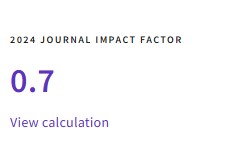Women's rugby: Macronutrient and fluid intake analysis
DOI:
https://doi.org/10.24310/riccafd.2021.v10i1.11032Keywords:
female rugby, nutritional intake, macronutrients, liquidsAbstract
In recent years, rugby as a female sports practice grew considerably. The intake of macronutrients, liquids among other factors influence sports performance. An inadequate diet can reduce sports performance.
Objective: To evaluate the intake of macronutrients and liquids, in women's rugbiers of Querandi club in Santa Fe, 2018.
Methodology: 14 amateur rugby players were evaluated, which was applied through three 24-hour reminders, energy intake, macronutrients and liquids.
Results: The average energy intake of the players was 1832.17 (± 553.23) kcal. The carbohydrate contribution of 50.03 (± 0.07)%, the proteins of 14.97 (± 0.04)% and the fats of 33.93 (± 0.06)% of the total kcal for the sport. As for liquids, 85.71% of rugbiers did not reach the recommendations. The average water consumption was 769.06 (± 323.17) ml.
Conclusion: The players complied with the energy, carbohydrate and lipid recommendations. They presented high protein intake according to the recommendations. Fluid intake was lower than recommendations
Downloads
Metrics
References
Veiga, M, 2016. Rugby femenino en La Plata. Nuevas formas de vivir y entender el deporte. Tesis de grado de la licenciatura en Comunicación Social. Facultad de Periodismo y Comunicación Social, UNLP. La Plata. Disponible en: http://sedici.unlp.edu.ar/bitstream/handle/10915/58759/Documento_completo__._Documento _completo. %20Documento%20completo.pdf?sequence=3 Última consulta 28/06/2017.
Suárez Arrones L, Portillo LJ, García Manso JM, 2011. Diferencias en el análisis de movimiento e intensidad de una final de rugby 7’s de alto nivel, Revista Andaluza de Medicina del Deporte, 4, Disponible en: Última consulta: 28/07/2017.
Onzari M, 2010. Alimentación y deporte. El Ateneo (Buenos Aires). 268 p.
Burke L. Nutrición en el deporte: un enfoque práctico, Editorial Medica Panamericana (Madrid) 2009; 1 ed, 536p.
Olivos CO, Cuevas AM, Álvarez V, et al. Nutrición para el entrenamiento y la competición, Rev. Med. Clin. Condes 2012; 23(3) 253-261.
Pramuková B, Szabadosová V, Soltésová A. Current knowledge about sports nutrition, Australasian Medical Journal 2011;4(3): 107-110.
Potgieter S. Sport nutrition: a review of the latest guidelines for exercise and sport nutrition from the american college of sport nutrition, the international Olympic committee and the international society for sports nutrition. South African journal of clinical nutrition 2013; 26(1): 6-16.
Dos Santos D, Queiroz Da Silveira J, Borges Cesar T. Nutritional intake and overall diet quality of female soccer players before the competition period, Rev. Nutr. Campinas 2016; 29(4):555-565. Disponible en: http://dx.doi.org/10.1590/1678-98652016000400010
Mielgo Ayuso J, Urdampilleta A, Martínez-Sanz JM et al. Análisis nutricional de la ingesta dietética realizada por jugadoras de voleibol profesional durante la fase competitiva de la liga regular. Rev Esp Nutr Hum Diet.2013; 17(1): 10 – 16
Thomas DT, Erdman KA, Burke LM. Position of the Academy of Nutrition and Dietetics, Dietitians of Canada, and the American College of Sports Medicine: nutrition and athletic performance. Journal of the Academy of Nutrition and Dietetics 2016; 116(3), 501-528.
Alonso Ojembarrena M, García Aparicio A, Torres García A. Análisis nutricional en jugadoras de hockey de alto rendimiento, http://www.efdeportes.com/ Revista Digital 2006; Año 11, N° 102. Disponible en: http://www.efdeportes.com/efd102/hockey.htm Última consulta: 01/12/2018.
Valliant MW, Pittman Emplaincourt H, Kieckhaefer Wenzel R, Garner B. H. Nutrition education by a registered dietitian improves dietary intake and nutrition knowledge of a NCAA female volleyball team. Nutrients 2012; 4(6), 506-516
Ayuso JM, Otegui AU, Sanz JM, Calvo JS. Análisis nutricional de la ingesta dietética realizada por jugadoras de voleibol profesional durante la fase competitiva de la liga regular. Revista española de nutrición humana y dietética 2013; 17(1), 10-16.
Ortiz, MJA, Suarez ML. Alimentación, suplementación y composición corporal de jugadoras de fútbol femenino de primera división de Córdoba, Trabajo de investigación para la Licenciatura en Nutrición, UNC, Repositorio digital UNC; 201; 109 pags, disponible en: https://rdu.unc.edu.ar/handle/11086/4712
Carmuega E. Patrón de consumo de agua y bebidas en nuestra población. Estudio hidratar. Actualización en Nutrición 2012; Vol. 13, suplemento 1.
Downloads
Published
How to Cite
Issue
Section
License
All the contents published in Revista Iberoamericana de Ciencias de la Actividad Física y el Deporte are subject to the Creative Commons Reconocimento-NoComercia-Compartirigual 4.0 license, the full text of which can be found at <http://creativecommons.org/licenses/by-nc-sa/4.0>
They may be copied, used, disseminated, transmitted and publicly exposed, provided that:
The authorship and original source of your publication (Journal, editorial and URL of the work) are cited.
They are not used for commercial purposes.
The existence and specifications of this use license are mentioned.

Copyright is of two kinds: moral rights and patrimonial rights. Moral rights are perpetual, inalienable, inalienable, inalienable, inalienable and imprescriptible prerogatives.
In accordance with copyright legislation, Revista Eviterna recognizes and respects the moral rights of the authors, as well as the ownership of the economic right, which will be transferred to the University of Malaga for dissemination in open access.
The economic rights refer to the benefits obtained by the use or disclosure of the works. Revista Iberoamericana de Ciencias de la Actividad Física y el Deporte is published in open access and is exclusively authorized to carry out or authorize by any means the use, distribution, disclosure, reproduction, adaptation, translation or transformation of the work.
It is the responsibility of the authors to obtain the necessary permissions of the images that are subject to copyright.
















9.png)
